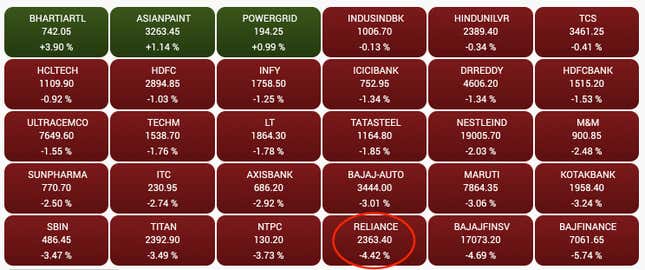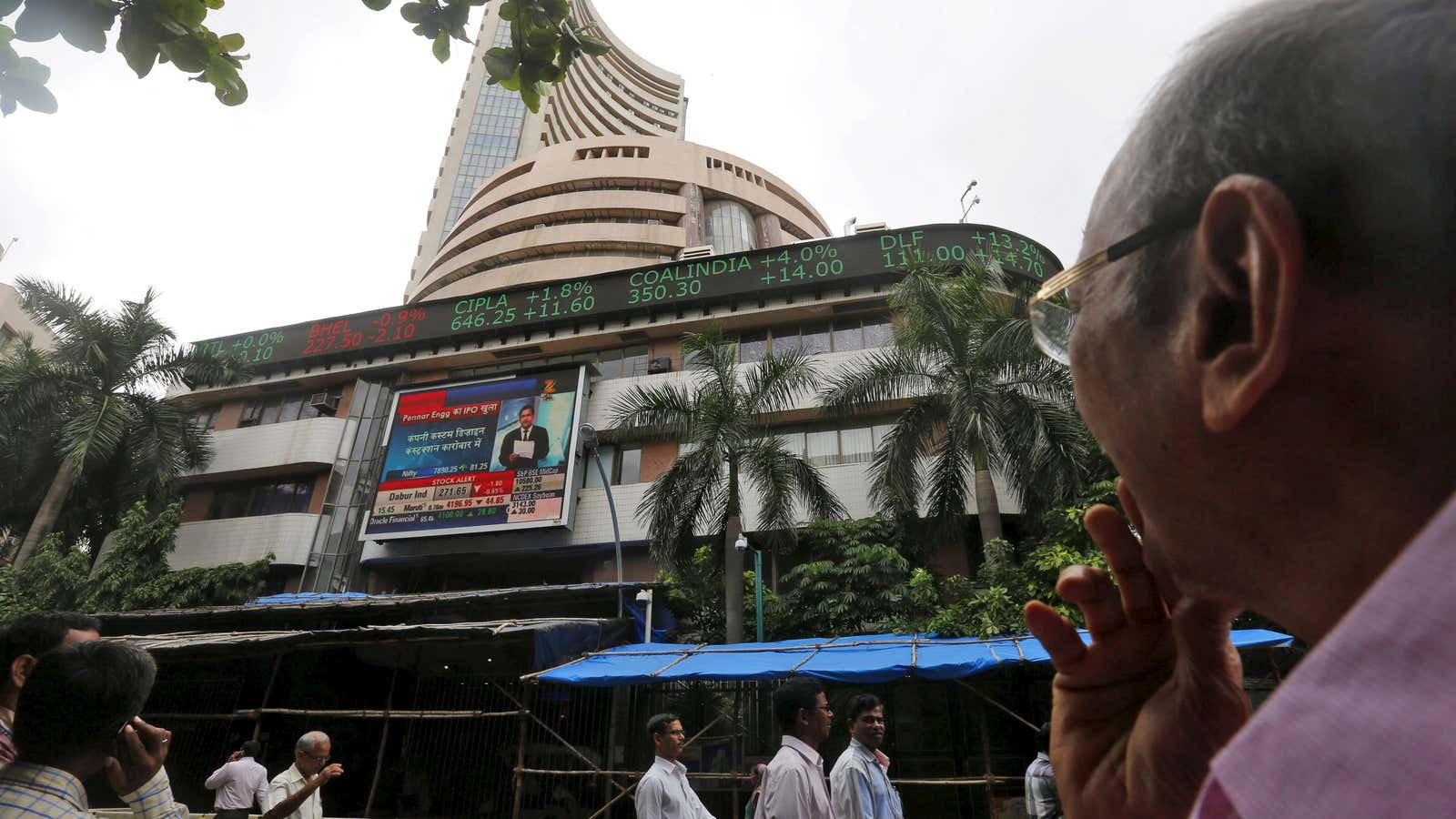India’s stocks are sliding down after two major business disappointments.
On Nov. 18, India’s biggest IPO tanked. The overhyped $2.5 billion Paytm stock market debut closed 27% lower on listing day. It plunged another 13% today (Nov. 22). Paytm’s “subdued listing” and subsequent “weak trading” are a “big sentimental setback,” says Vinod Nair, head of research at Geojit Financial Services. “It will impact the inflow of money from the retail segment, which has been a key player during the year.”
A day after the Paytm listing, Reliance Industries’ 2019 deal with Saudi Arabia’s state-controlled energy giant Aramco was called off. As India’s largest company eyes a greener future, Aramco’s plan to buy a 20% stake worth $15 billion is off the table. Shares of the Mukesh Ambani-led company fell more than 4% on the news.
The two events together created a cocktail of chaos for domestic public markets. “Re-evaluation of the index heavyweight RIL’s deal with Saudi Aramco and continued selling pressure on shares of India’s largest IPO Paytm are bearing heavy on indices,” Nirav Karkera, head of research at investment advisory Fisdom, told daily newspaper Mint.
The benchmark S&P BSE Sensex, which includes Reliance among its 30 stocks, plunged more than 1,000 points, or 1.96%, to 58,465.89.

The broader NSE Nifty index, which comprises 50 of India’s largest companies, also fell 1.96%, ending 348 points lower at 17,416.55.
Of course, Reliance and Paytm alone haven’t derailed the country’s public markets. There are slew of other local and international factors eroding investor sentiment, including:
- A global chip shortage that is weighing heavy on auto stocks; India’s biggest auto manufacturer Maruti Suzuki’s stock slid more than 3% after it ruled out entering the diesel segment again.
- Nifty’s public sector banks, realty, mining, and FMCG indices falling; index heavyweights like Kotak Bank and Bajaj Finance are trending down.
- The impact of prime minister Narendra Modi’s decision to repeal farm laws on agriculture and logistics players.
- The return of covid-19 restrictions in part of Europe.
- The risk of rising inflation around the world.
Meanwhile, the brightest spot in an otherwise troubled market is the telecom sector. Bharti Airtel and its rival Vodafone Idea both rallied 6% after Airtel raised tariffs.
